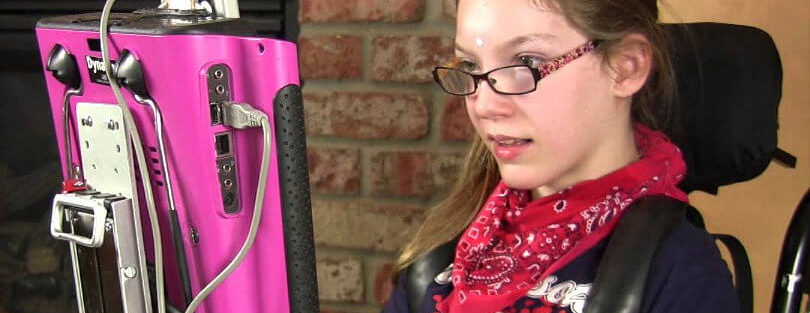Many people can benefit from incorporating adaptive equipment and assistive devices into their everyday lives. This includes:
- People with disabilities
- Seniors
- People with gradual functional decline/debilitative illnesses
- People with non-communicable diseases (e.g. diabetes and stroke)
- People with mental health conditions (including dementia and autism)
Cognitive Devices – These items are specifically designed to help people with brain injuries, dementia, mental illness, and intellectual disabilities. Adaptive cognitive devices include diaries, calendars, lists, schedules, and personal organizers.
Communication Devices – These assistive technology items are intended to help people who have difficulty producing or understanding speech. Depending on their functionalities, these devices may be referred to as augmentative (supporting speech) or alternative (compensating for speech).
Daily Living Devices – The largest category of assistive devices for people with disabilities, these items allow you to safely live at home for as long as possible. They’re specifically designed to help you complete activities of daily living (ADLs) and instrumental activities of daily living (IADLs).
Hearing Devices – Along with making it easier to hear, these assistive devices can improve your language skills, thereby increasing your access to education and employment.
Mobility Devices – This category of assistive devices for people with disabilities includes a wide variety of items that make it easier to navigate your physical environment. You can also find ultra-lightweight mobility devices that allow you to play sports and remain physically active.
Your best bet is to pick the simplest product that targets the specific activity that you need assistance with. Along with being easier to use, basic devices are typically less expensive and easier to maintain than complicated ones. Solicit recommendations from other people with disabilities, and request a free trial whenever possible to see if the assistive device will actually meet your needs.


